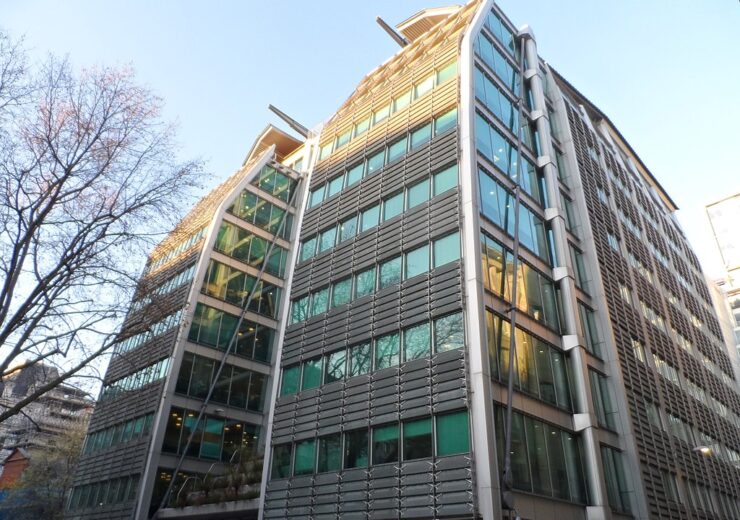Lloyds saw its statutory profit before tax come down by 97% to £50m, compared to £1.817bn made in the same quarter a year ago

Headquarters of Lloyds Banking Group in London. (Credit: Carcharoth/Wikipedia.org)
Lloyds Banking Group reported a statutory loss after tax for the third quarter of 2019 at £238m, compared to the statutory profit after tax of £1.423bn made in the same quarter of the prior year.
The banking group said that the earnings (loss) per share for the third quarter that ended 30 September 2019 was 0.5p, compared to 1.8p of earnings per share reported in Q3 2018.
The British financial institution’s third-quarter loss was due to the £1.8bn charge it took towards the provision of payment protection insurance (PPI). As a result, the banking group’s statutory profit before tax was down by 97% to £50m, compared to £1.817bn made in the same quarter a year ago.
Lloyds reports net income of £4.18bn in Q3 2019
Lloyds registered a 6% decline in its Q3 2019 net income at £4.187bn from £4.452bn made in Q3 2018. The group’s operating costs for the reported quarter came down by 4% to £1.91bn from the figure of £1.99bn in Q3 2018.
For the nine months that ended 30 September 2019, the banking group saw its statutory profit after tax drop by 47% from £3.74bn that was reported in the same period in 2018 to £1.98bn. The group took a charge of £2.45bn towards PPI in the first nine months of the current year.
The net income for the banking group was down by 3% to £13bn in the first nine months of 2019 compared to £13.42bn in the same period in 2018.
Lloyds Banking Group chief executive António Horta-Osório said: “In the first nine months of 2019 we have made strong strategic progress and delivered solid financial performance in a challenging external environment.
“I am disappointed that our statutory result was significantly impacted by the additional PPI charge in the third quarter, driven by an unprecedented level of PPI information requests received in August. However, our performance continues to demonstrate the resilience of our customer franchise and business model, the strength of our balance sheet and that our strategy is the right one in this environment.”
